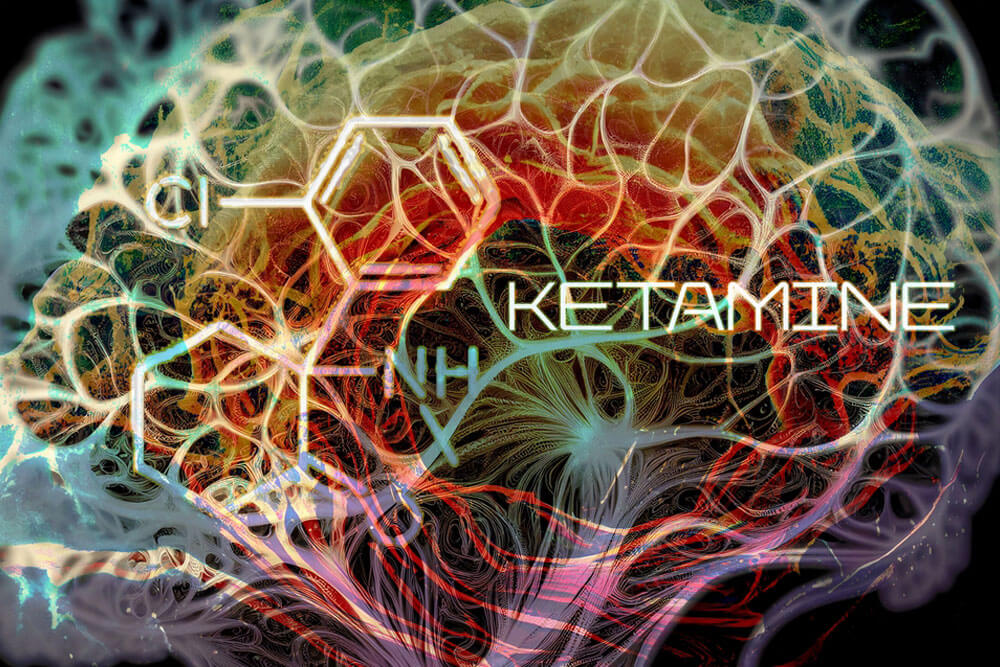One of Houston’s Only Experts Offering Ketamine Treatment for Depression
Ketamine is life-saving for people with severe depression who do not respond to other depression treatments. We founded Brain Health Consultants in order to offer state of the art care in a private and discreet setting. In addition to more routine treatment, like standard antidepressants and therapy, we are able to offer several breakthrough treatments for patients whose depression has not responded to other therapies. One of these is ketamine, described as the ‘Biggest Breakthrough in Depression Treatment in 50 Years”. This is not an FDA approved treatment – if you are seeking ketamine treatment for depression, you should only proceed with a well qualified psychiatrist on site, because at the doses used, most side effects and risks are psychiatric. The reason we are able to offer such cutting-edge approaches is partially in thanks to one of our founders, Dr. Al Jurdi. He was one of the researchers working with ketamine in the early studies of people with treatment-resistant depression (TRD). TRD is depression that has not responded to other therapies. These studies were backed with funding by prestigious institutions like the National Institutes of Health and the Department of Veterans Affairs. Dr. Marangell, BHC’s other co-founder, is a nationally recognized expert in TRD with clinical experience using ketamine for depression treatment. The treatment is done as an outpatient in the privacy of our offices.
Ketamine Treatment for Depression
The reason antidepressants may not work for everyone is that they target just a few of the brain’s chemical transmitter systems, such as serotonin, norepinephrine and dopamine. Ketamine can produce positive results in situations where drugs affecting these chemicals have been ineffective, possibly by working through specific receptors in the glutamate system. Several studies have shown dramatically improvement in many people with TRD, often in hours or days. Ketamine has not been yet formally approved as an antidepressant, but it is an FDA approved medication for general anesthesia and has been widely used by doctors since the 1960’s, so we know a lot about the safety. When we this medication to treat depression, we use a low dose that does cause you to go to sleep. You do not need an anesthesiologist. The treatment can be performed using a special device to administer the medication via a nasal mist or by having a doctor gently inject the medication into a vein or muscle. We prefer the nasal mist, as we will tell you why below.
Ketamine Frequently Asked Questions (FAQ)
Is ketamine for depression better in a Nasal Spray or when Injected with a Needle into a Vein (Intravenous)?
Ketamine is not usually given in pill form because going through the digestive system inactivates the medicine before it can get to the brain, and the amount getting to the brain becomes inconsistent. Ketamine is available to doctors as a liquid for injection into a vein because the drug’s most common use is for surgical anesthesia.
Because of this common practice, most of the research about ketamine for depression also used the intravenous route (into a vein), although at a lower dose. This was extremely important research, and studies with intravenous administration are still being conducted.
However, many people do not like needles, and we are able to use a technology that allows liquid medicines to be “atomized” into a fine mist that delivers drugs with a nasal spray. The “dose” that the body gets is very similar to the intravenous route because we adjust the dose for the known “bioavailability”. The amount of ketamine that your brain sees can be the same with intranasal and intravenous as long as the dose is adjusted for bioavailability, which we do. If a person cannot take a nasal mist, perhaps because of a disease of the nose, we can offer the intravenous route as well. A very large research program is ongoing for FDA approval using a ketamine isomer delivered by a nasal mist and some studies of ketamine-like new drugs also use the intravenous route.
Is ketamine addictive?
When we use ketamine to treat severe depression, we use ketamine that is manufactured in FDA-approved facilities with government safety oversight. We also use it in a controlled, low dose to provide the desired outcome with minimal risk.
When overseen by professionals and administered in a controlled clinical setting, ketamine therapy can in fact be a safer alternative to some prescription drugs. Patients should also note that ketamine is not a narcotic and when given in medical setting has never been known to be addictive.
What kind of doctor should I go to for ketamine treatment?
If you are having ketamine as an anesthetic for surgery the medicine will be given by the anesthesiologist.
If you are getting ketamine for the treatment for severe depression, you need a psychiatrist who is familiar with your specific condition. Psychiatrists are medical doctors who are specially trained to evaluate and treat illnesses that involve changes in mood, thinking and behavior.
Treating severe depression is a very complex process, and ketamine is known to produce hallucinations and feelings of dissociation or not being real in some patients. Patients with bipolar disorder may become manic. Therefore, we do not recommend that ketamine be given for depression by doctors who are not psychiatrists. A psychiatrist is uniquely able to catch these problems early and intervene. Serious medical side effects are very rare when ketamine is used to treat depression. But just in case, our offices include a medical procedure room that we use for ketamine treatment.
If you are receiving ketamine treatment for chronic pain, you should go to a doctor who is specially trained in pain.
How long does each treatment last?
Plan to be in our offices for about 90 minutes for each treatment and plan to take the remainder of the day off from work, school and other activities. You should not drive the day of the treatment.

